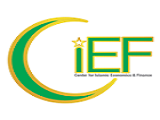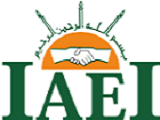Sustainability Reporting (ESG) Quality: a Comparative Study Between Manufacturing and Banking Companies
Abstract
This study aims to examine the influence of standalone CSR reports, GRI standards, and external assurance services on the quality of ESG sustainability reports between 2 sectors, namely the manufacturing and banking sectors. The data used in this study were 47 banking sectors and 163 manufacturing sectors. The results of this study are expected to provide an understanding of cross-sector sustainability and assist stakeholders regarding information on sustainable reporting practices. This study contributes, firstly, by providing evidence on the level of quality of sustainability reporting in two different sectors, namely the banking and manufacturing sectors. Secondly, this study focuses on standalone CSR disclosures, the use of GRI standards, and external assurance services. The findings show that the quality of ESG sustainability reports in the banking sector is more influenced by external assurance services. Banking companies assume that external assurance services can improve the credibility and quality of sustainability report information if the assurance process is carried out with a focus on meeting stakeholder needs and based on applicable assurance principles and standards. Meanwhile, in the manufacturing sector, the quality of ESG sustainability reports in banking companies is more influenced by their own CSR reports. CSR presented by a separate company is an important type of report because it shows the company's commitment to addressing environmental issues.
Keywords
Full Text:
PDFReferences
Aggarwal, K. (2022). The impact of corporate attributes on voluntary HR disclosure practices: a study of Indian corporate sector. Asian Journal of Economics and Banking. https://doi.org/10.1108/ajeb-05-2022-0048
Barus, S. H., & Siregar, S. V. (2015). The effect of intellectual capital disclosure on cost of capital: Evidence from technology intensive firms in Indonesia. Journal of Economics, Business, and Accountancy | Ventura, 17(3), 333. https://doi.org/10.14414/jebav.v17i3.355
Bhatia, A., & Makkar, B. (2020). CSR disclosure in developing and developed countries: a comparative study. Journal of Global Responsibility, 11(1), 1–26. https://doi.org/10.1108/JGR-04-2019-0043
Boon, C., Den Hartog, D. N., & Lepak, D. P. (2019). A Systematic Review of Human Resource Management Systems and Their Measurement. Journal of Management, 45(6), 2498–2537. https://doi.org/10.1177/0149206318818718
Cuadrado-Ballesteros, B., & Sánchez, I. M. G. (2016). How are corporate disclosures related to the cost of capital? The fundamental role of information asymmetry. Management Decision, 54(7). https://doi.org/10.1108/MD-10-2015-0454
Deegan, C. (2004). Financial Accounting Theory. New South Wales: McGraw-Hill Australia.
Di Vaio, A., Palladino, R., Hassan, R., & Alvino, F. (2020). Human resources disclosure in the EU Directive 2014/95/EU perspective: A systematic literature review. Journal of Cleaner Production, 257, 120509. https://doi.org/10.1016/j.jclepro.2020.120509
Donaldson, T., & Preston, L. E. E. E. (1995). The Stakeholder Theory of the Corporation : Concepts , Evidence , and Implications Author ( s ): Thomas Donaldson and Lee E . Preston Source : The Academy of Management Review , Jan ., 1995 , Vol . 20 , No . 1 ( Jan ., 1995 ), pp . Published by : Academy . 20(1), 65–91.
Embong, Z., Mohd-Saleh, N., & Hassan, M. S. (2012). Firm size, disclosure and cost of equity capital. Asian Review of Accounting, 20(2), 119–139. https://doi.org/10.1108/13217341211242178
Fontaine, C., Haarman, A., & Schmid, S. (2006). The Stakeholder Theory. https://doi.org/10.4135/9780857020109.n99
Gerhart, B., & Feng, J. (2021). The Resource-Based View of the Firm, Human Resources, and Human Capital: Progress and Prospects. Journal of Management, 47(7), 1796–1819. https://doi.org/10.1177/0149206320978799
Guthrie, J., Petty, R., Yongvanich, K., & Ricceri, F. (2004). Using content analysis as a research method to inquire into intellectual capital reporting. Journal of Intellectual Capital, 5(2), 282–293. https://doi.org/10.1108/14691930410533704
Hilorme, T., Perevozova, I., Shpak, L., Mokhnenko, A., & Korovchuk, Y. (2019). Human Capital Cost Accounting In The Company Management System. Academy of Accounting and Financial Studies Journal, 23(2), 1–6.
Huggins, W. H. (1956). Signal Theory. IRE Transactions on Circuit Theory, 3(4), 210–216. https://doi.org/10.1109/TCT.1956.1086321
Joni, J., Ahmed, K., & Hamilton, J. (2020). Politically connected boards, family and business group affiliations, and cost of capital: Evidence from Indonesia. British Accounting Review, 52(3), 100878. https://doi.org/10.1016/j.bar.2019.100878
Kling, G., Volz, U., Murinde, V., & Ayas, S. (2021). The impact of climate vulnerability on firms’ cost of capital and access to finance. World Development, 137, 105131. https://doi.org/10.1016/j.worlddev.2020.105131
Komara, A., Ghozali, I., & Januarti, I. (2020). Examining the Firm Value Based on Signaling Theory. 123(Icamer 2019), 1–4. https://doi.org/10.2991/aebmr.k.200305.001
Lajili, K. (2022). Human capital disclosure and the contingency view. Personnel Review. https://doi.org/https://doi.org/10.1108/PR-10-2020-0791
Laplume, A. O., Sonpar, K., & Litz, R. A. (2008). Stakeholder theory: Reviewing a theory that moves us. In Journal of Management (Vol. 34, Issue 6). https://doi.org/10.1177/0149206308324322
Leitmann, J. (1996). Browning The Bank : The World Bank’s Growing Investment In Urban Environmental Management. Elsevier, 1(96), 351–361.
Macke, J., & Genari, D. (2019). Systematic literature review on sustainable human resource management. Journal of Cleaner Production, 208, 806–815. https://doi.org/10.1016/j.jclepro.2018.10.091
Meek, G. K., Roberts, C. B., & Gray, S. J. (1995). Factors Influencing Voluntary Annual Report Disclosures By U.S., U.K. and Continental European Multinational Corporations. Journal of International Business Studies, 26(3), 555–572. https://doi.org/10.1057/palgrave.jibs.8490186
Onuoha, N. E., Ofoegbu, G. N., Okafor, R. G., & Onodugo, V. A. (2020). Voluntary disclosure of intellectual capital information by deposit money banks in Nigeria. Journal of Intellectual Capital, 21(6), 1035–1052. https://doi.org/10.1108/JIC-09-2019-0229
Orazalin, N. (2019). Corporate governance and corporate social responsibility (CSR) disclosure in an emerging economy: evidence from commercial banks of Kazakhstan. Corporate Governance (Bingley), 19(3), 490–507. https://doi.org/10.1108/CG-09-2018-0290
Prasad, D., Bruton, G. D., & Vozikis, G. (2000). Signaling value to business angels: The proportion of the entrepreneur’s net worth invested in a new venture as a decision signal. Venture Capital, 2(3), 167–182. https://doi.org/10.1080/13691060050135064
Putra, F. K. G., Harymawan, I., Nasih, M., & Augustia, D. (2020). A quest to minimize cost of debt by utilizing human resources disclosure. Polish Journal of Management Studies, 21(2), 342–355. https://doi.org/10.17512/pjms.2020.21.2.24
Robinson, T. R., Henry, E., & Broihahn, M. A. (2020). International Financial Statement Analysis. In Wiley. John Wiley & Sons, Inc., Hoboken, New Jersey.
Salvi, A., Raimo, N., Petruzzella, F., & Vitolla, F. (2022). The financial consequences of human capital disclosure as part of integrated reporting. Journal of Intellectual Capital, 23, 1221–1245. https://doi.org/https://doi.org/10.1108/JIC-03-2021-0079
Salvi, A., Vitolla, F., Raimo, N., Rubino, M., & Petruzzella, F. (2020). Does intellectual capital disclosure affect the cost of equity capital? An empirical analysis in the integrated reporting context. Journal of Intellectual Capital, 21(6), 985–1007. https://doi.org/10.1108/JIC-12-2019-0283
Spence, M. (1973). Job Market Signalling. The Quarterly Journal of Economic, 87(3).
Syofyan, R., Putra, D. G., & Aprayuda, R. (2020). Influence of Company Value Information, Dividend Policy, and Capital Structure on Stock Price. SAR (Soedirman Accounting Review) : Journal of Accounting and Business, 5(2), 152. https://doi.org/10.20884/1.sar.2020.5.2.3554
Vitolla, F., Raimo, N., & Rubino, M. (2020). Board characteristics and integrated reporting quality: an agency theory perspective. Corporate Social Responsibility and Environmental Management, 27(2), 1152–1163. https://doi.org/10.1002/csr.1879
Vitolla, F., Salvi, A., Raimo, N., Petruzzella, F., & Rubino, M. (2020). The impact on the cost of equity capital in the effects of integrated reporting quality. Business Strategy and the Environment, 29(2), 519–529. https://doi.org/10.1002/bse.2384
Walsh, G., Mitchell, V. W., Jackson, P. R., & Beatty, S. E. (2009). Examining the antecedents and consequences of corporate reputation: A customer perspective. British Journal of Management, 20(2), 187–203. https://doi.org/10.1111/j.1467-8551.2007.00557.x
Wang, Y. C., Huang, H. W., Chiou, J. R., & Huang, Y. C. (2017). The effects of industry expertise on cost of debt: An individual auditor-level analysis. Asian Review of Accounting, 25(3), 322–334. https://doi.org/10.1108/ARA-08-2014-0092
Whiting, R. H., & Miller, J. C. (2008). Voluntary disclosure of intellectual capital in New Zealand annual reports and the “hidden value.” Journal of Human Resource Costing & Accounting, 12(1), 26–50. https://doi.org/10.1108/14013380810872725
Zhang, R., Li, Y., & Liu, Y. (2021). Green bond issuance and corporate cost of capital. Pacific Basin Finance Journal, 69(August), 101626. https://doi.org/10.1016/j.pacfin.2021.101626
DOI: http://dx.doi.org/10.24042/ijebi.v10i1.23671
Refbacks
- There are currently no refbacks.
Copyright (c) 2025 Ahmad Juanda, Setu Setyawan, Maryam Shahuneeza Naseer

This work is licensed under a Creative Commons Attribution-ShareAlike 4.0 International License.
Ikonomika : Jurnal Ekonomi dan Bisnis Islam is a Journal of Islamic Economics and Business, Published by the Faculty of Islamic Economics and Business at UIN Raden Intan Lampung Indonesia. This work is licensed under a Creative Commons Attribution-ShareAlike 4.0 International License.






11.png)

.png)
1.png)


.png)
1.png)
.png)
.png)
.png)
2.png)
.png)
.png)
.png)
2.png)
5.png)